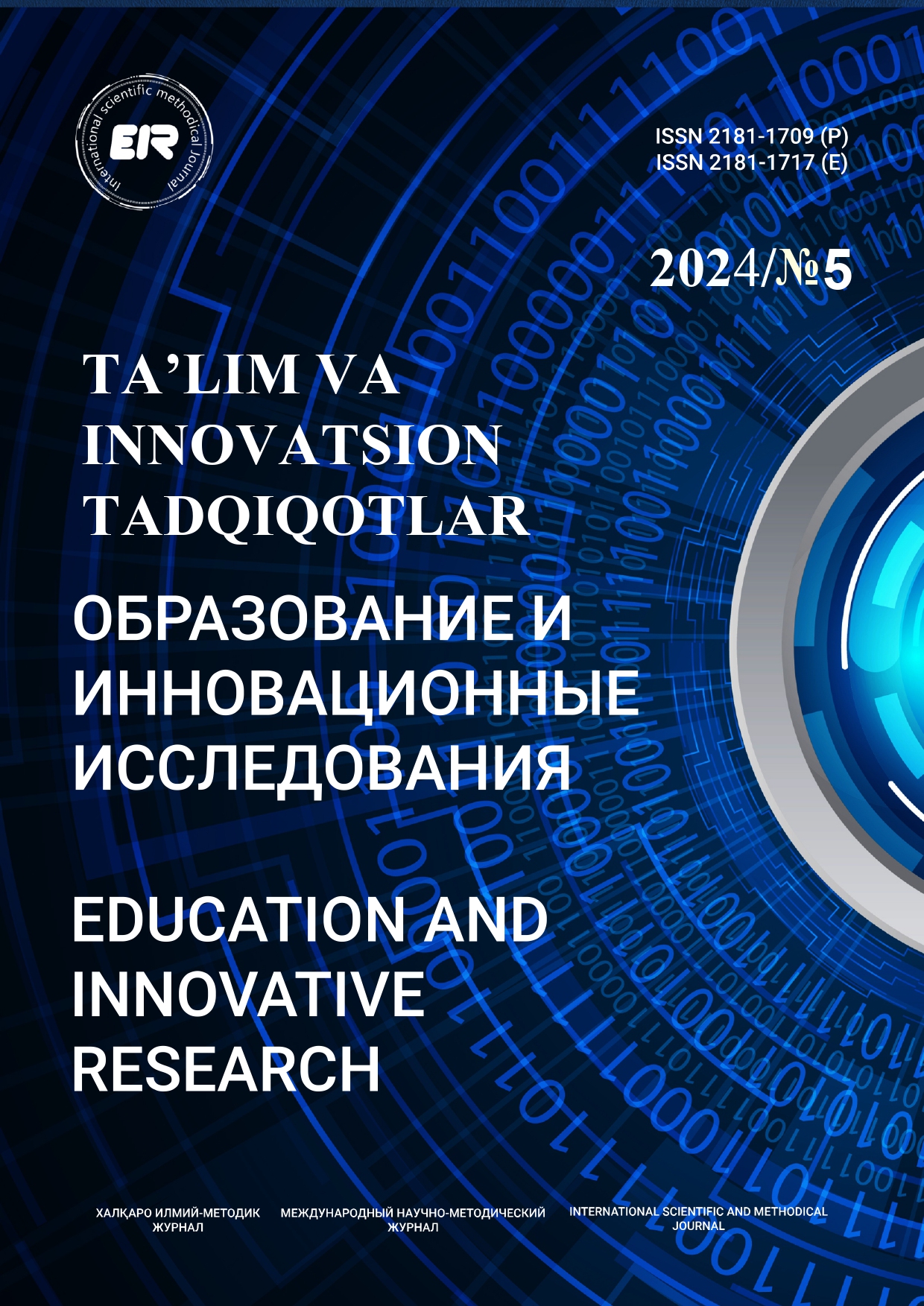ARTIFICILA INTELLIGENCE IN TEACHING BUSINESS ENGLISH
Ruzmetova Muhabbat PhD in Pedagogic Sciences, Associate Professor, The Banking and finance academy of the Republic of Uzbekistan “TIIAME” National Research University
Keywords:
Foreign language teaching experience, artificial intelligence, business English, assessment, specific topics, teaching, mobile application development.Abstract
In this article is described the specific features of business English teaching and the advantages of using artificial intelligence application. It is also discussed that recent artificial intelligence consists of algorithms and software systems designed to perform various actions, and it performs a number of tasks that the human mind can accomplish based on the IT basics. In particular, the creation of a high-quality and highly effective methodology in the organization of modern English language learning and teaching is summarised, taking into account of the participation of artificial intelligence applications in order for optimizing the reduction of the human factor in the assessment process of student knowledge. There is commonly explored the idea of teaching English with using artificial intelligence technologies and creating a complex innovative software mobile application. Moreover, in this article are analysed in detail, the practical and scientific results achieved by world experts and activities are carried out in the cooperation with scholars in the field.
References
Farrux HАKIMOV. https://strategy.uz/index.php?news=1198. “Taraqqiyot strategiyasi” markazi boʼlim boshligʼi
Lizhen Shi, Arshad Muhammad Umer & Yanting Shi. Utilizing AI models to optimize blended teaching effectiveness in college-level English education. ISSN: (Print) (Online) Journal homepage: https://www.tandfonline.com/loi/oaed20
L. Ferguson, “Advancing Research Integrity Collaboratively and with Vigour,” 2022, https://www. hindawi.com/post/advancingresearch-integrity-collaboratively-and-vigour/
S. Makridakis, “The forthcoming artificial intelligence (AI) revolution: its impact on society and firms,” Futures, vol. 90, no. jun., pp. 46–60, 2017.
P. Fernandez, ““Through the looking glass: envisioning new library technologies” how artificial intelligence will impact libraries [J],” Library Hi Tech News, vol. 33, no. 5, pp. 5–8, 2016.
E. Vickers, “The strange child: education and the psychology of patriotism in recessionary Japan by Andrea Gevurtz Arai,” Monumenta Nipponica, vol. 72, no. 1, pp. 146–152, 2017.
M. Garcia, “Racist in the machine: the disturbing implications of algorithmic bias,” World Policy Journal, vol. 33, no. 4, pp. 111–117, 2016.
A. I. Review, “About the authors,” Artificial Intelligence Review, vol. 15, no. 6, pp. 1–6, 2016.





